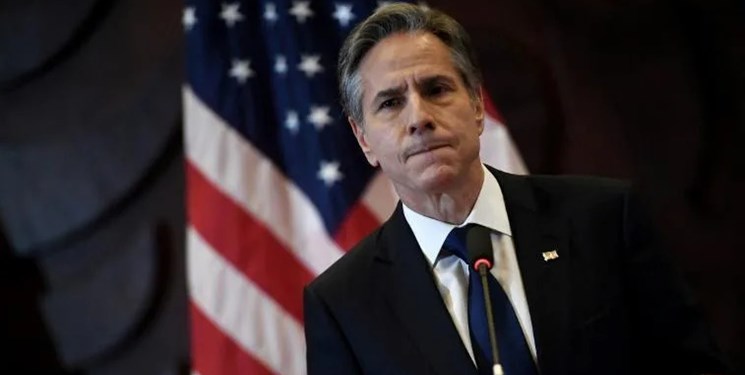Blinken: Leaving Nuclear agreement was one of America’s worst decisions.
The US Secretary of State stated that the decision of the previous US administration to leave the UN Security Council was one of the worst foreign policy decisions of that country.
US Secretary of State Anthony Blinken called the withdrawal from the UN Security Council one of the worst decisions in US foreign policy.
“We stopped them,” Blinken, who spoke to NPR radio, said in response to a host’s question about how the United States intends to block Iran’s move to acquire a “nuclear weapon.” “The nuclear deal reached a few years ago under the Obama administration curbed Iran’s nuclear program.”
Western countries, led by the United States and the Zionist regime, have in recent years accused Iran of pursuing military goals in its nuclear program. Iran has strongly denied these allegations.
Iran emphasizes that as a signatory to the Nuclear Non-Proliferation Treaty (NPT) and a member of the International Atomic Energy Agency, it has the right to acquire nuclear technology for peaceful purposes.
In addition, International Atomic Energy Agency (IAEA) inspectors have visited Iran’s nuclear facilities several times, but have never found any evidence that the country’s peaceful nuclear energy program is deviating from military purposes.
In addition, in 2015, Iran reached an agreement with the so-called P5 + 1 countries to resolve tensions over its nuclear program. Despite the International Atomic Energy Agency’s acknowledgment of Iran’s adherence to all of its obligations, the US government unilaterally withdrew from the agreement in May 2016.
Blinken criticizes Trump’s decision
“One of the worst actions in recent US foreign policy has been to pull out of that agreement, as a result of which we are now in a challenging position where, instead of reaching a new and so-called better agreement, Iran has a nuclear program,” he said. “He has behaved dangerously.”
“We still believe that if we can return to the UN Security Council in the coming weeks – not in the coming months – it will be the best course of action for our security, as well as for the security of our partners and allies in the region,” Blinken said, referring to the ongoing talks in Vienna. “But time is very, very short.”
“Iran is approaching the point where it can produce the fissile material needed to make a nuclear bomb in a very, very short time,” he said. “At the same time, they are making progress [in terms of the nuclear program] that will be increasingly difficult to reverse, because they are learning new things and doing new things.”
One year after the US withdrawal from Borjam, Tehran announced that it would reduce its obligations under Borjam in a few steps, given that European countries had not fulfilled their promises. The reduction of Iran’s obligations took place under the provisions of the Borjam nuclear agreement.
The Islamic Republic of Iran, after taking five steps to reduce its commitments, finally announced on January 6, 2017 that it no longer faces any operational constraints (including enrichment capacity, enrichment percentage, amount of enriched materials, and research and development).
Iran’s actions are subject to the provisions of the IAEA Board, which allow either party to reduce its obligations if the other party fails to comply with the terms of the agreement.









